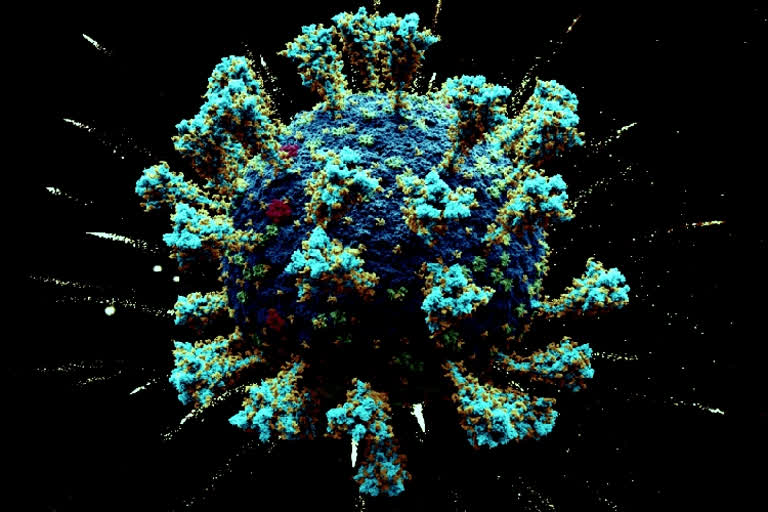New Delhi: Amid a resurgence of Covid-19 across the globe driven primarily by Omicron and Delta variants, a new strain of Coronavirus has been discovered by French researchers.
The new variant, probably of Cameroonian origin, has been temporarily named as 'IHU'. after its discovery was announced by researchers from Méditerranée Infection in Marseille, part of France’s Instituts hospitalo-universitaires (IHU, or University Hospital Institutes).
The new variant, classified as B.1.640.2.
"For twelve SARS-CoV-positive patients living in the same geographical area of southeastern France, qPCR testing that screen for variant-associated mutations showed an atypical combination," said Philippe Colson, from IHU Mediterranee Infection, Marseille, France.
However, "it is too early to speculate on virological, epidemiological or clinical features of this IHU variant based on these 12 cases," Colson said.
Who was the first one to get infected?
According to the study, the index case (the first patient) was a vaccinated adult who had returned to France from a trip to Cameroon, in central Africa.
Three days after returning he developed mild respiratory symptoms. His nasopharyngeal sample collected mid-November 2021, "revealed an atypical combination that did not correspond to the pattern of the Delta variant involved in almost all SARS-CoV-2 infections at that time", and later to Omicron as well, Colson said.
Respiratory samples collected from seven other SARS-CoV-2-positive patients living in the same geographical area exhibited the same combination of mutations screened by qPCR. They were two adults and five children (below 15 years of age).
The respiratory samples from these eight patients were sent to university hospital institute Mediterranee Infection for SARS-CoV-2 genome sequencing as recommended by French public health authorities.
Further tests led to SARS-CoV-2 genotype identification. The analysis revealed 46 mutations and 37 deletions resulting in 30 amino acid substitutions and 12 deletions. Fourteen amino acid substitutions, including N501Y and E484K, and 9 deletions are located in the spike protein.
"This genotype pattern led to create a new Pangolin lineage named B.1.640.2, which is a phylogenetic sister group to the old B.1.640 lineage renamed B.1.640.1. Both lineages differ by 25 nucleotide substitutions and 33 deletions," the study said.
"The mutation set and phylogenetic position of the genomes obtained here indicate, based on our previous definition, a new variant we named 'IHU'," Colson said.
He added that the data is "another example of the unpredictability of the emergence of SARS-CoV-2 variants".
"Overall, these observations show once again the unpredictability of the emergence of new SARS-CoV-2 variants and their introduction from abroad, and they exemplify the difficulty to control such introduction and subsequent spread," Colson said.
"SARS-CoV-2 variants have become a major virological, epidemiological and clinical concern, particularly with regard to the risk of escape from vaccine-induced immunity. The emergence of the new variant warrants the increase of genomic surveillance of SARS-CoV-2," he said.
What is WHO saying?
The World Health Organization (WHO) claims IHU has not become much of a threat since it was first identified.
"The variant has been on our radar,” Abdi Mahamud, WHO incident manager on Covid, said at a press briefing in Geneva on Tuesday. “That virus", he said, "had a lot of chances to pick up.”



